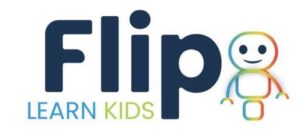Dive Brief:
- Iowa and Utah in late January became the second and third states to enact universal education savings account programs, following in Arizona’s footsteps from summer 2022.
- The $42.5 million Utah law paired the state’s new universal education savings account program for K-12 students with an $8,400 annual teacher salary boost. The law’s Utah Fits All Scholarship Program will take effect in the 2024-25 school year and provide eligible students not enrolled full time in a public school with up to $8,000 per year in scholarship funds.
- In Iowa, Gov. Kim Reynolds signed into law the Students First Act creating an education savings account for K-12 students who want to attend private schools. Eligibility for the expected $7,598 annual scholarships per student will open up to all K-12 students in the state, regardless of income, by the 2025-26 school year. The program’s estimated cost ranges from $106.9 million in FY 2024 up to $344.9 million in FY 2026.
Dive Insight:
School choice policies have increasingly gained traction among state lawmakers since the pandemic shifted how parents think about their options for their children’s schooling.
But not everyone supports such measures.
When Arizona initially approved the nation’s first education savings account open to all school-age children, opponents launched a petition drive to put the measure on the 2024 ballot. However, that petition effort, started by Save Our Schools Arizona, failed in fall 2022, and the law moved forward.
Critics argue that ESA programs will divert money from public education to private schools and homeschooling without much academic or financial accountability.
After Reynolds first proposed Iowa’s voucher program, Iowa State Education Association President Mike Beranek said in a statement that such a law would “pull critical resources from public schools which serve more than 90% of Iowa students.”
“It will send public dollars to private schools most Iowa families will never benefit from,” Beranek said.
Utah Education Association President Renée Pinkney also spoke out against the proposal in that state. Pinkney said such a program would not benefit rural families who lack access to private schools, and it would also hurt public education.
“If legislators really value the important work educators do every day, a salary increase should not come with strings attached just to pass a private school voucher bill,” Pinkney said. “Lawmakers should focus on providing solutions to our public schools’ most urgent needs, like large class sizes, increased student behavior issues and severe staffing shortages.”
In a recent survey of 3,820 parents by the National School Choice Awareness Foundation, 31.5% said they considered enrolling their children in public charter schools, 29.1% thought about private or religious schools, while 22.9% looked at homeschooling and 20.8% mulled over full-time virtual instruction.
In announcing Iowa’s new voucher program, Reynolds said in a statement that public schools are not the only choice, though they may continue to be the best option for most families.
“For some families, a different path may be better for their children. With this bill, every child in Iowa, regardless of zip code or income, will have access to the school best suited for them,” Reynolds said.






Leave a Reply